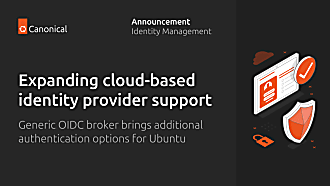Victor Tuson Palau
on 7 March 2012
Anthony Wong, Project Technical Lead at Canonical, presented our process for improving hardware support in Ubuntu at our 2011 Hardware Summit. He did such a good job that I asked him to distill the essence of his presentation into a blog post. This is what he had to say:
Ubuntu has always been dedicated to providing a great user experience to support a wide variety of hardware on the desktop, by installing the necessary drivers seamlessly during the system installation. Having said that, there are lots of things happening behind the scene to deliver this level of hardware support that is among the best in Linux distributions.
Canonical has been working closely with many Original Equipment Manufacturers (OEMs) for several years in shipping Ubuntu on laptops, desktops and servers. Lots of hardware issues have been found and fixed so that all the major hardware in the machines can be operated correctly.
One of the missions of the Canonical Hardware Enablement (HWE) Team is to track and drive code changes from OEM enablement projects into future Ubuntu releases and upstream. We have a concept of n+1 fixes which we do our best to make sure that those bugs are corrected in our next (that is, n+1) release.
The following two diagrams illustrate how HWE collaborate with upstream maintainers and our kernel team in order to have code fixes flow from OEM projects to Ubuntu distribution and upstream (click on the images to enlarge).
The first scenario depicts the case that a hardware bug is found in an OEM enablement project and no known fix has yet existed.There are generally two ways we can proceed from here, one is to have our engineers develop a fix and submit to upstream, the other one is to report the issue to upstream and work with them until a fix is done, which can then be merged into our kernel. In the former case, once our fix is acknowledged by the upstream maintainers and committed to their git tree, we can then merge it into our n+1 kernel and update the current release via the Stable Release Update (SRU) process.
It’s not unusual to find that issues found in OEM projects have already been resolved in the latest code branches. We will usually verify if they have already been fixed in mainline or the n+1 kernel, and if they have, we will identify the related patches and provide them to the OEM team, and also backport them as SRU’s to the current release. The diagram below shows two cases of such scenario.
We aim to certify any OEM project (e.g. based on 11.10) with the next release of standard Ubuntu (e.g 12.04).
For more information on how we engage with OEM/ODMs please visit odm.ubuntu.com





